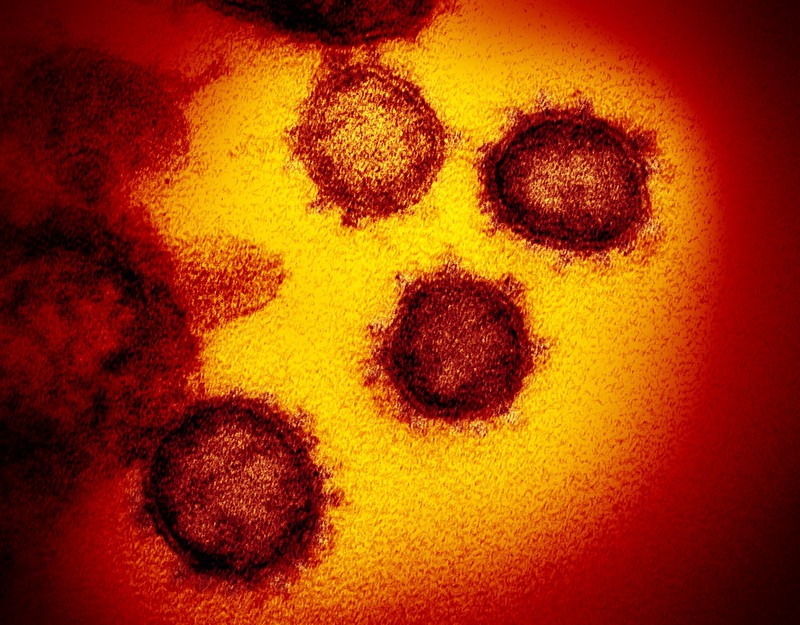
“These viruses are fighting for our lungs, and this appears to be one that has an advantage over other strains of SARS-CoV-2,” he said.
100 million inside an infected person over the course of a day. He said viruses are also sloppy
in that they’ll make a random mistake in about one of every three copies it makes – and in
some instances, those mutations can give the virus an advantage over other versions.
“Mutation is how the virus responds to the world. It’s basically how they are able to stay in the
game, how they’re able to stay competitive,” he said. “That’s all they are. They’re just
competitive little things that make mistakes in order to adapt or respond to their environment.”
In the Delta variant, the mutation is a change in position in its spike protein, which allows the
virus to penetrate and infect healthy cells. Neuman said a similar variant circulating in Texas
and Mexico has the same mutation.
Though a strain may have advantages over others, Neuman said its spread often comes down
to the activity of people. Two people standing 20 feet away from each other probably won’t
transmit the virus, regardless of the variant. But if an individual is in close contact with
someone who’s infected, they’re likely to be exposed and likely will catch that variant if they
don’t have immunity.
“Our vaccination rates are not high enough to where we can expect that this virus will go away
on its own,” Neuman said.
---------------------------------
More severe and more contagious
said David Fisman, epidemiologist and professor at the
University of Toronto.
control.”
times more likely to go to intensive care and twice as likely to
die than patients with the original strain of SARS-CoV-2,”
he added.
is in 130 countries (an increase of seven); and the
Gamma variant, first identified in Brazil, has reached three more
countries this week, for a total of 78.
Criticism of the variant detection protocol
the Delta variant in the province. Most establishments are not allowed to carry out
screening and sequencing of cases themselves, so when COVID-19 patients are
admitted to hospital, health-care workers are often unaware of the strain they are
dealing with.
While this does not change the work of staff in the health network, it does raise
concerns among specialists and in certain establishments, who would like to be able
to screen the cases themselves.
“We don’t know, but we don’t need to know, because it is the same precautions, the
same treatments and the same support,” said François Marquis, head of the
intensive care unit at Maisonneuve-Rosemont Hospital.
According to him, Quebec has seen low case numbers from the Delta variant
themselves. “Most have been banned from screening or sequencing variants in their
labs and must send their samples to the provincial public health lab (LSPQ).
I wonder if this method is reliable, and if we really are at five per cent,“
said Roxane Borgès Da Silva, professor at the Université de Montréal’s school of
public health (ESPUM).
who would like to be able to do the screenings and who, at the moment, are not
allowed to,” she added.
necessary tools to screen cases before the possible increase in Delta variant cases.
“There is no reason why, at some point, this strain won’t become dominant, like in
many countries. There is a risk, as with the other variants, of getting there one day.
We must prepare for it,” she said.
Tracking progress
“It is important to monitor the progress of the different variants, because it would
allow us to put more stringent measurements in the regions where the presence of
the Delta variant is greater,” he said.
Loemba added that the Delta variant can cause large outbreaks and infect entire
regions. “We would not have to put the public health restrictions back in place in all
of Quebec, but we could set them in the regions most affected, to limit the spread of
the variant,” he said.
its progression, to allow time for the population to be adequately vaccinated,
he said. “We are not an island. We’re going to have a Delta variant wave for sure,
but it’s going to come later than in other countries.” He added that the Alpha variant
also caused a wave of cases in the United Kingdom and in Europe before arriving in
Canada a few months ago.
“The Delta is sure to become dominant. It’s written in the stars. The only reason this
wouldn’t be the case is either because we vaccinated everyone, or a new variant
arrives and takes the place of the Delta,“ Marquis said.
the same as those from the initial strain of the virus. Loss of smell no longer seems
to be one of the main symptoms. The symptoms are more like the flu, Marquis said.
“Right now, in the northern hemisphere, there isn’t influenza, so if anyone has
flu-like symptoms, it’s COVID-19,” he said.
Sequencing and screening, what’s the difference?
Sequencing is the most efficient method of identifying variants, as it allows the
analysis of the complete genetics of a virus. However, it is a long and expensive
procedure that can only be done with a fraction of COVID-19 cases. Screening is a
faster, low-cost technique to determine if positive cases are due to any of the
variants. If a screening test is positive, health authorities may perform full
sequencing to determine precisely which variant it is.
and Agence France-Presse
No comments:
Post a Comment